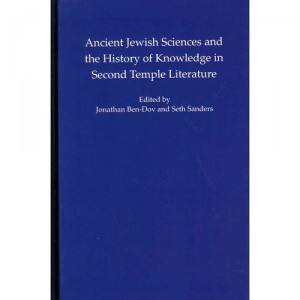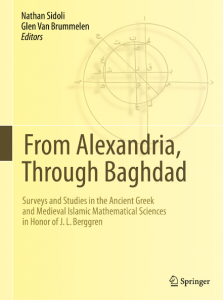This conference programme was posted to Jack Sasson’s Agade list by John Steele. It looks very exciting.
The Circulation Of Astronomical Knowledge In The Ancient World
12-13 April 2014
Brown University, Pembroke Hall 305
This conference will explore the ways in which astronomical knowledge in the ancient world circulated between different communities of scholars over time and space. This broad theme includes both the transmission of knowledge between one culture and another (eg from the Babylonians to the Greeks, or the Greeks to India), and between different groups in the same culture (eg later authors writing commentaries on earlier works, the communication of astronomical knowledge between different cities, the relationship between ‘elite’ and ‘popular’ astronomy, and the reinterpretation of earlier astronomical traditions by later astronomers). The circulation of astronomical knowledge provides an insight into both the way that astronomy was practiced, learnt and written down and the wider political and cultural connections between different societies.
Programme
Saturday 12 April
Morning Session
9:00am Welcome and Introduction
9:30am Francesca Rochberg (Berkeley / ISAW)
The Brown School of the History of Science: Historiography and the Astral Sciences
10:00am Joachim F. Quack (Heidelberg)
On the Contemporaneity of the Seemingly Incongruous, or Why Astral Lore Cannot be Studied in Isolation from the Rest of the Culture.
10:30am Andreas Winkler (Berkeley)
The Transmission of Knowledge in the Ancient Egyptian Astrological Manuals
11:00am Break
11:30am Daniel P. Morgan (Laboratoire SPHERE, CNRS – Université Paris Diderot)
Mercury and the Case for Plural Planetary Traditions in Early Imperial China
12:00pm Ethan Harkness (New York University)
The Popular Face of Astronomical and Calendrical Knowledge in Early China
12:30pm Guan Yuzhen (Brown University)
The Transmission of Knowledge Between Chinese Astronomers in the 2nd Century AD
Afternoon Session
2:30pm Niu Weixing (Shanghai Jiao Tong University / Brown University)
On the Dunhuang Manuscript P.4071: A Case Study of the Sinicization of Western Horoscope in late 10th Century China
3:00pm Song Shenmi (Shanghai Jiao Tong University)
The Twelve Signs of the Zodiac in the Tang and Song Dynasties: A Set of Signs Which Lost their Meanings Within Horoscopic Astrology
3:30pm Kristina Buhrman (Florida State University)
Classical Texts and Post-Hoc Adjustments: The Revival of the Rule Cycle (章) in 12-Century Japan
4:00pm Break
4:30pm Matthew Rutz (Brown University)
Astral Knowledge in an International Age: Transmission of the Cuneiform Tradition, ca. 1500-1000 BC
5:00pm John Steele (Brown University)
The Circulation of Astronomical Knowledge Between Babylon and Uruk
Sunday 13 April
Morning Session
9:00am Zackary Wainer (Brown University)
Tablet 4 of the Series DIŠ Sîn ina Tāmartišu and Traditions of Mesopotamian Interpretive Eclipse Schemes
9:30am M. Willis Monroe (Brown University)
The Micro-Zodiac in Babylon and Uruk: Seleucid Zodiacal Astrology
10:00am John Z. Wee (University of Chicago)
Late Babylonian and Greco-Roman Medical Astrology
10:30am Break
11:00am Toke Knudsen (SUNY Oneonta)
Omens and Omen Series in Mesopotamia and India: Issues of Transmission
11:30am Zoë Misiewicz (ISAW)
Assyrian Lunar Omens in Byzantium
12:00pm Clemency Montelle (University of Canterbury)
Hypsicles of Alexandria and his Little Book of Rising Times
Afternoon Session
2:00pm Alexander Jones (ISAW)
Interpolated Observations in Ancient Astronomy
2:30pm Kim Plofker (Union College)
What, if Anything, is Greek About Aryabhata’s Mean Motions? An Examination of the Controversy
3:00pm Closing Remarks
The conference is free and open to all.
Tags: India



